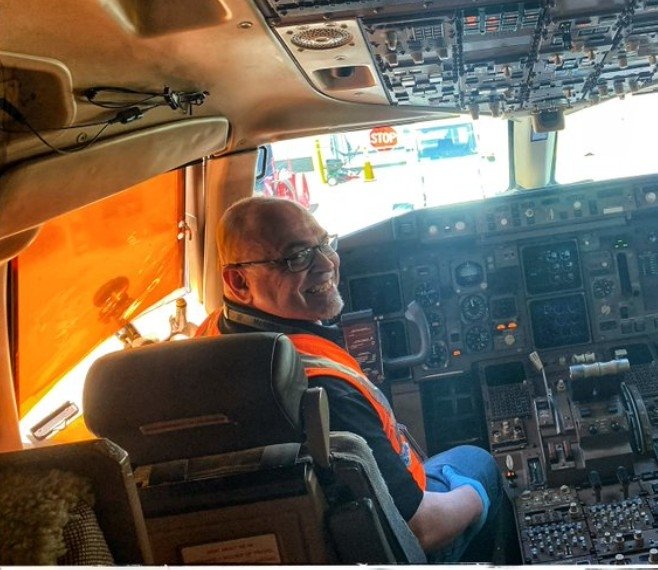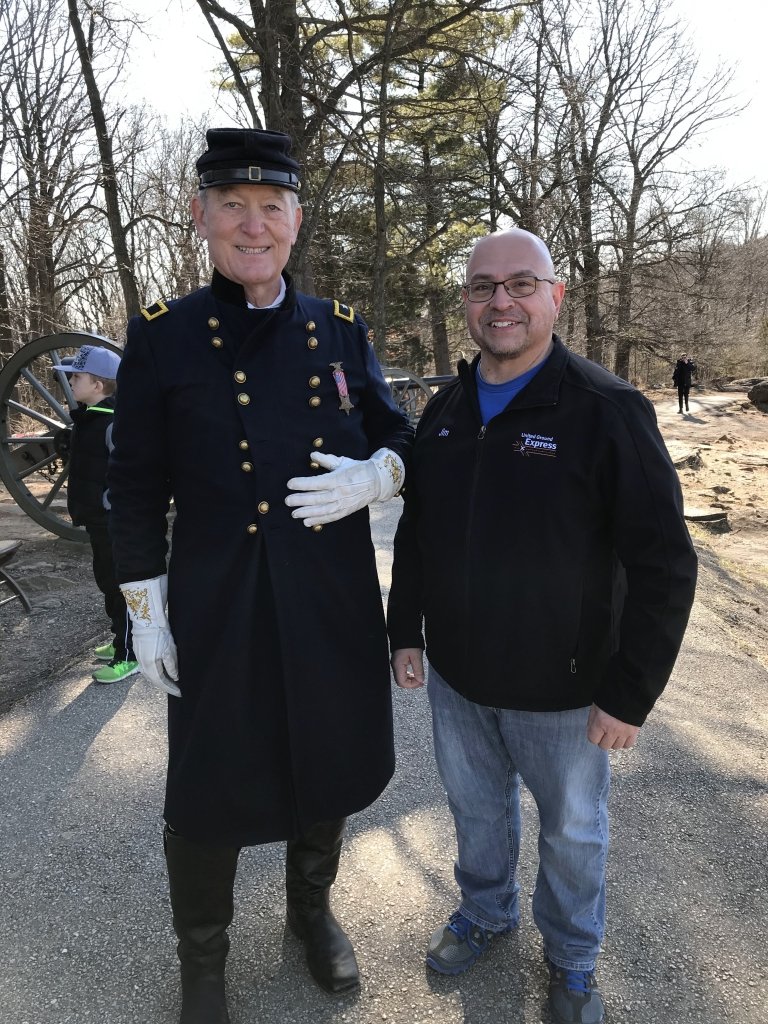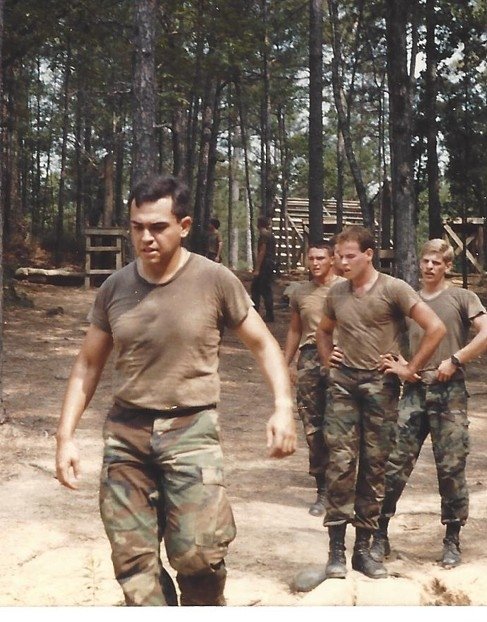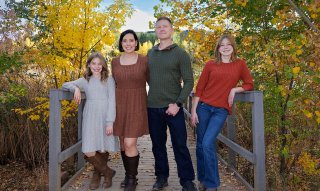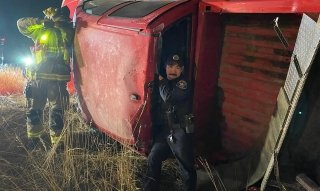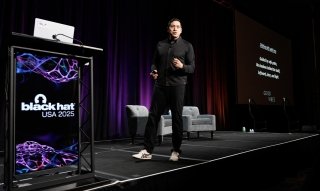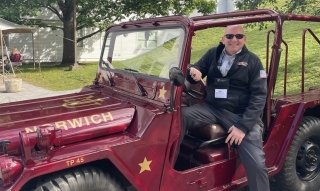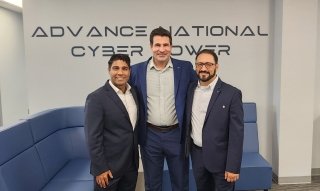Jim Cepeda
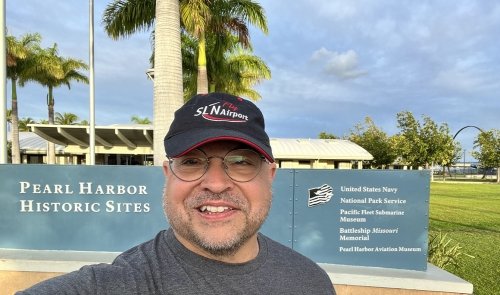
Norwich made the entire process straightforward, from applying and being accepted to understanding what to expect. The experience has been so positive that it’s truly reignited my passion for learning
Finding Purpose Through History: How Norwich Rekindled Jim Cepeda’s Love of Learning
After more than two decades away from the classroom, Jim Cepeda decided it was time to challenge himself again. A self-proclaimed “ROTC baby,” former law enforcement officer, and veteran of both the Army National Guard and Army Reserve, he approached graduate school with a desire to learn for the sake of learning.
“I came to Norwich three years ago because I’ve always loved military history,” Cepeda said. “I had all this knowledge and interest, but nowhere to really channel it or discuss it. I wanted something that would keep me focused and provide structure. After doing my research, Norwich became my final choice, and it’s turned out to be exactly what I needed.”
Now holding master’s degrees in both Military History and History — with an American History concentration — Cepeda sees his Norwich experience as a turning point that reignited his curiosity and confidence as a scholar.
Rediscovering a Passion for Learning
Cepeda’s academic journey began decades earlier with a bachelor’s degree in psychology in 1986, followed by service in law enforcement and the pursuit of an associate’s degree in industrial engineering technology. Later, while working in manufacturing, he earned a Bachelor of Science in industrial technology from Southern Illinois University at the Navy base in Memphis.
Even with a full career behind him, the desire to learn never left. “If I could be a professional student, I would,” Cepeda said. “When I retire, I want to live somewhere near a college so I can take courses just for fun.”
After years of considering graduate school, he finally took the leap. His first attempt in 2021 didn’t go as planned. A year later, the idea resurfaced, and this time, it stuck. “I was 59 and realized I wasn’t trying to start another career. I just wanted to do something for me,” he said.
He enrolled at Norwich in December 2022 and quickly found himself at home. He completed his Master of Arts in Military History in 2024 and, recognizing the natural overlap between that and American History, continued on to earn a second master’s degree. With his capstone nearly complete, he plans to take a short break before returning for two graduate certificates.
“Norwich made the entire process straightforward, from applying and being accepted to understanding what to expect,” Cepeda said. “The experience has been so positive that it’s truly reignited my passion for learning.”
Why Norwich
Cepeda first discovered Norwich years before applying. “I’d read about it long before the pandemic, when hardly anything was offered online,” he said. “When I decided to study military history, I started looking for programs that fit, and Norwich stood out right away.”
He compared several universities, including The Citadel and Arizona State University, but Norwich’s academic focus and accessibility won him over. “The Citadel required three letters of recommendation and standardized test scores, and I didn’t want to spend months jumping through hoops,” he recalled. “Norwich made it simple. Everyone I spoke to was helpful and responsive. I never waited more than a day for an answer, usually just a couple of hours.”
For Cepeda, it came down to two things: Norwich’s broader focus on military history and the support he received from every department. “The combination of a strong academic program and outstanding support made Norwich the clear choice for me.”
Expanding His Perspective
Cepeda expected his graduate studies to be a deeper version of undergraduate history, more dates, more names, more analysis. What he found was a far more complex and engaging world of ideas.
His first class, taught by Dr. John Broom, introduced him to historiography and the many schools of thought that shape historical study. “I didn’t even know there were schools of history,” Cepeda admitted. “The feminist school of history completely hooked me. I had to stop myself from writing too much in the weekly discussions.”
Dr. Broom’s advice to “get out of your comfort zone” reshaped Cepeda’s view of what it means to be a historian. “He said anyone can be the expert on the Battle of Midway, but a real historian explores topics they’ve never studied before. That comment changed everything for me.”
That mindset carried into Dr. Tony Piscatelli’s amphibious warfare course. “I thought it would just be about World War II landings,” he said, “but it opened my eyes to operations throughout history I’d never considered amphibious.” The class culminated in a debate over the Marine Corps Force Redesign 2030, which sparked Cepeda’s deep interest in Chinese strategy and Pacific affairs.
When it came time for his capstone, he applied those lessons again. What began as a study of medical modernization between the Civil War and World War I evolved into an exploration of women’s contributions to that progress. “Every source I found mentioned women in some capacity,” he said. “It became clear that their influence was a major part of the story.”
With the guidance of his capstone advisor, Dr. Lisa Mundey, Cepeda refined his focus and strengthened his research. “Each professor has had a huge impact on me,” he said. “Dr. Broom lit the spark, Dr. Piscatelli fueled it, and Dr. Mundey helped me refine it.”
A Proud ROTC Legacy
For Cepeda, attending Norwich carried a personal connection that went beyond academics. “I’ve always considered myself an ROTC baby,” he said. “I was in Junior ROTC in high school and Senior ROTC in college before commissioning in 1985. Studying at the birthplace of ROTC felt like coming home.”
That connection to tradition remains a point of pride. “Norwich is one of the senior military colleges in the United States, and the only private one,” Cepeda noted. “Those details might not mean much to everyone, but to me, they mean a great deal. Being part of the oldest senior military school and the home of ROTC gave me a sense of pride and belonging I can’t quite describe.”
Continuing to Learn and Lead
Even as he nears the completion of his second master’s degree, Cepeda’s academic journey is far from over. He regularly attends the Military History Writers’ Symposium, usually remotely, and plans to complete graduate certificates in Strategic Studies and Defense Policy, as well as Intelligence and National Security.
“I’ve always been drawn to geopolitical and defense-related topics,” he said. “I subscribe to newsletters from organizations like Defense One and the Center for Strategic and International Studies. The certificates will help me study those issues in a more structured way.”
When asked to describe Norwich in one word, Cepeda didn’t hesitate: “Worthwhile.”
He credits the university’s accessibility, supportive faculty, and rigorous coursework for his success. “Norwich challenges you,” he said. “It’s a lot of work, but that’s what makes it meaningful. If it were easy, it wouldn’t be as rewarding.”
As for what keeps him connected, Cepeda points to one thing above all: the library. “The Kreitzberg Library is incredible,” he said. “It has books I can’t even find in my public library. Before I finished my last degree, I asked if I could still access it after graduation because I didn’t want to lose it.”
At home, Cepeda has built his own collection containing more than 100 physical books and over 6,000 eBooks. “I’ll never read them all,” he laughed, “but if there’s a way to donate them to Norwich someday, that’s what I’ll do. I can’t think of a better home for them.”

